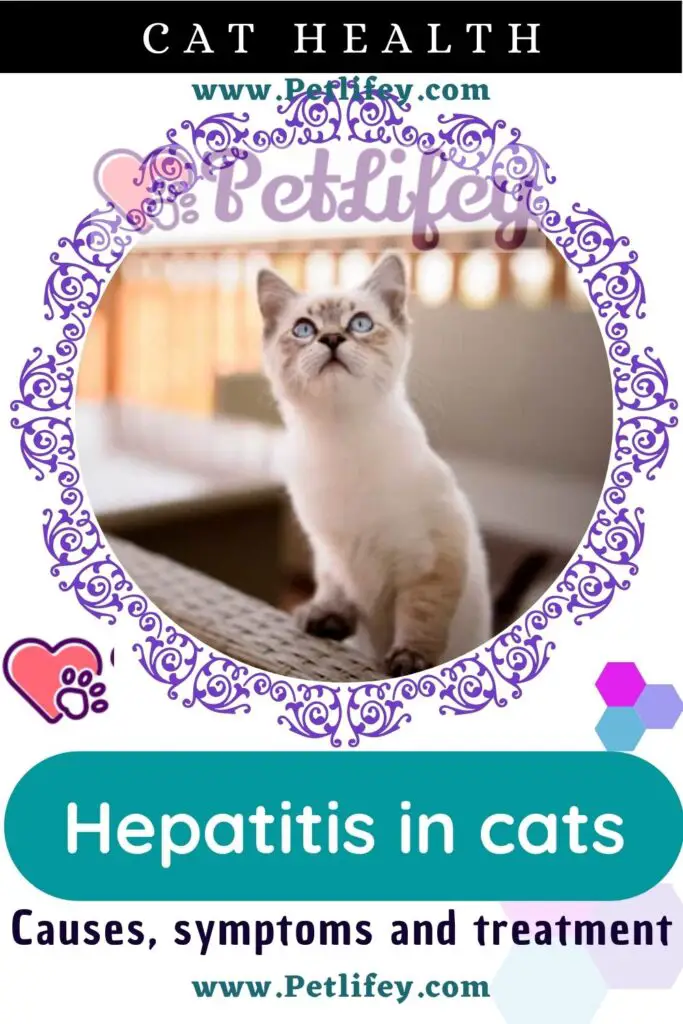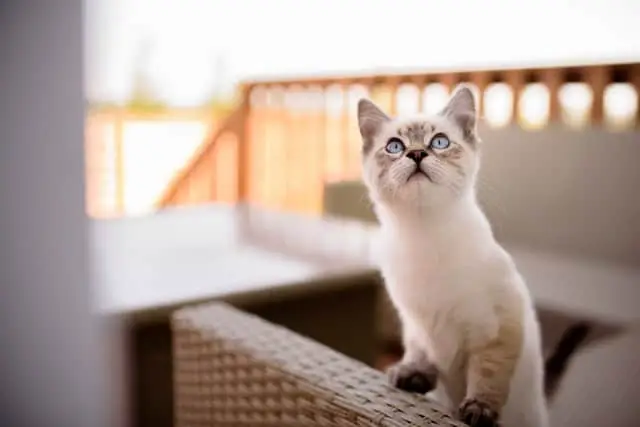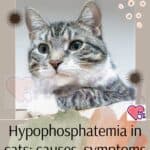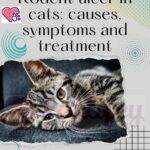
Hepatitis in cats should not be taken lightly as it is potentially fatal. Let’s see what the causes, symptoms and treatment are.
When the liver does not function properly, it leads to a disease called hepatitis. The liver is an organ that produces biliary and digestive secretion which is then released into the small intestine, participating in digestion.
It produces many proteins necessary for the body to function (especially clotting factors) and detoxifies the body if a toxic foreign substance (such as drugs or bacteria) were to pass into the blood.
Causes of hepatitis in cats
The causes of hepatitis in cats can be different, among these we have:
- Toxic hepatitis, which is the destruction of hepatocytes (the main cells of the liver) by a substance ingested by the cat. During intoxication the liver is the first organ affected.
- Cholangiohepatitis, this disease can become chronic and is a common disease, in which the bile ducts are colonized by bacteria that come from the digestive tract. This causes inflammatory infiltration of the bile ducts in the cat.
- Hepatic lipidosis, which is a liver overload disease (the cat therefore suffers from a “fatty liver”). It is characterized by a rapid and severe accumulation of fat within the liver. The disease can lead to liver failure and death, as anorexia occurs in the cat (total interruption of the diet).
- Liver tumors, caused by the infiltration of tumor cells in other parts of the body by tumor cells, therefore called secondary tumors. The most common case is lymphoma, in which cancer cells infiltrate the liver (and spleen).
- Feline infectious peritonitis (FIP), characterized in particular by a liver attack. It is a rare disease caused by a coronavirus. There are two clinical forms of PIF: the wet form and the dry form, but their distinction is not easy.
Symptoms of hepatitis
It becomes imperative that you take your cat to the vet as soon as possible if you notice one or more of the following symptoms:
- Apathy;
- immobility;
- general weakness;
- loss of appetite for more than 24 hours;
- strange behavior;
- meow for no reason;
- swollen belly;
- abstinence from drinking for more than a day, possible dehydration in the cat .
Finally, it is possible that a hypoproteinemia will form which will cause ascites (fluid that accumulates in the abdomen), this is because the liver damage is significant and the liver can no longer perform its normal functions, causing bleeding disorders and a decrease in blood proteins.).
Diagnosis of hepatitis in cats
When the vet suspects liver damage, he makes his diagnosis with a blood test and abdominal ultrasound that directly visualizes the organ.
He can also, where he deems it useful, do a fine needle aspiration collecting liver cells that can subsequently send them to an analysis laboratory, this test is very useful in case of suspicion of tumor infiltration in the liver.
Treatment for feline hepatitis
Although the symptoms may be relatively similar, regardless of the primary cause of the disease , the treatment that will be applied will be different:
- During lipidosis, the main treatment is force feeding. The sick cat refuses to eat alone and therefore hospitalization will be necessary, where through a feeding probe (nasophageal probe, applied without the need to do anesthesia to the cat), to gradually re-establish its needs nutritional.
- In cholangiohepatitis, treatment is mainly based on the administration of antibiotics.
- Depending on the nature of the liver cancer, it is possible to subject the cat to anticancer chemotherapy to limit the progression of the disease and increase the life expectancy of the animal.
Your treatment of the cat with hepatitis

The veterinarian, if he evaluates the situation as serious, will deem it appropriate to leave the cat for a few hours in the hospital, where it will be hydrated and restored with the values. When the cat begins to feel a little better, he does not mean that he is cured of hepatitis, but he can continue the therapy at home.
At this point owners should be willing to take care of it by paying close attention to what the pet needs. This does not mean that you have to supervise the cat 24h, it is not necessary to be next to the animal all day, but only to make sure we leave it everything it might need in our absence.
Feeding the cat with hepatitis is complicated, because due to the disease, the cat does not want to eat anything, not even drink water. We must be very patient, but at the same time insist so that the cat that is not hungry can eat something.
Under the advice and prescription of the veterinarian, you can also give some medicinal herbs for the cat, for example, dandelion, alfalfa and turmeric that will help to stimulate the appetite of the cat with hepatitis.
In fact, many pet owners evaluate and often opt for alternative treatments such as Bach flowers and natural herbs which can include chestnuts, willows, honeysuckle or wild apples. Another alternative instead is homeopathy.
Another key factor is rest, one of the best remedies for a cat with hepatitis (or any other major illness). Therefore, we try to give the best conditions at home, a comfortable bed, a shelter, a quiet place to rest.
Along with rest, the cat will like to be alone for most of the day so that it can recover. Let’s not disturb him all the time, it can be counterproductive. Cats do not like to be disturbed, taken with arrogance in the arms or forced to do certain things, they are very sensitive and delicate.
Try to respect your pet without forgetting it completely and neglecting its care, let it isolate itself and rest and it will return to live happily as before, only with your care.






